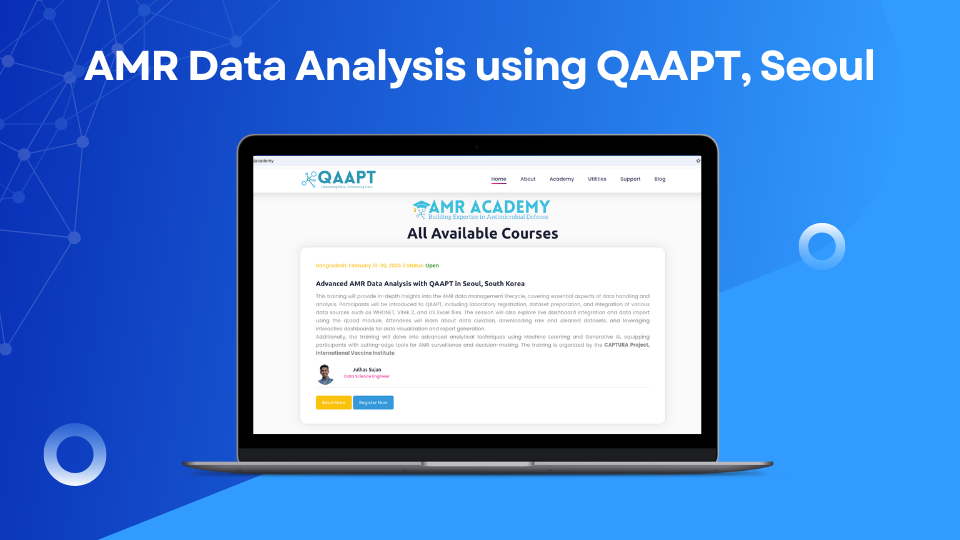CAPTURA Under RGR1
Under RGR1, the "Capturing Data on Antimicrobial Resistance Patterns and Trends in Use in Regions of Asia" (CAPTURA) project, led by the International Vaccine Institute (IVI), collaborated across 12 countries in SA and SEA. CAPTURA gathered and analyzed retrospective data on AMR and AMU in the human health sector, working closely with governments to assess data quality and identify gaps, providing critical regional context.
CAPTURA II Under RGR2
Under RGR2, six out of eight RG programmes continue as Set 1 grants. CAPTURA II continues to build upon Phase I achievements to enhance:
- ✔ AMR data quality, quantity, analysis, and dissemination efforts
- ✔ Data collection methodologies
- ✔ Surveillance system performance monitoring
- ✔ Data management practices (including clinical data linkages)
- ✔ Strategic planning for sustained AMR surveillance system improvements
Outputs from CAPTURA II will inform regional and national initiatives aimed at:
- ✔ Improving AMR surveillance
- ✔ Promoting antimicrobial stewardship
- ✔ Shaping evidence-based policy formulation
Technical Assistance for Clinical Engagement (TACE) Grant
The Technical Assistance for Clinical Engagement (TACE) grant is awarded to IVI under RGR2 Set 2 grants programme. The Set 2 grants are new regional grants designed to provide technical assistance (TA) to support countries by enhancing:
- ✔ Regional coordination and collaboration
- ✔ Regional data sharing
- ✔ AMR response strategies
- ✔ Human resource capacity building
The TACE grant focuses on providing technical support to the FF Country Grant – Nepal to:
- ✔ Improve the use of laboratory services
- ✔ Generate high-quality and representative AMR data in the Human Health (HH) sector
CAPTURA II Objectives
- ✔ Improve data quality and quantity, analysis, interpretation, and dissemination at both country and regional levels.
- ✔ Assist in awareness, advocacy, and policy development to address AMR, AMC, and AMU at both country and regional levels.
- ✔ Establish collaborations with private sector organizations working on AMR-related aspects.
TACE Objectives
- ✔ Improve the use of diagnostic services and AMR/U/C and burden data in clinical practice in the Human Health sector.
- ✔ Provide technical assistance (TA) to share quality analyses with decision-makers.














